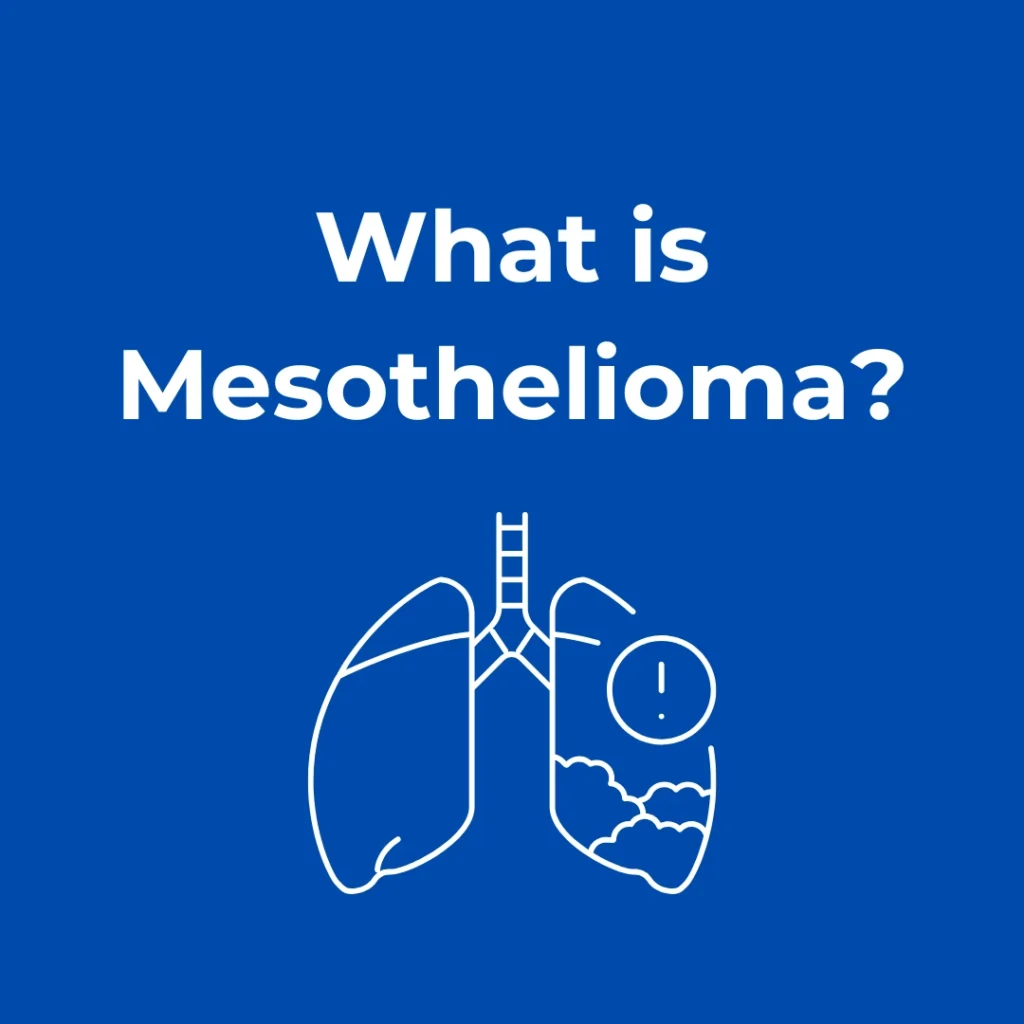When diagnosed with mesothelioma, many people have the question, “What is mesothelioma?” Mesothelioma is a form of cancer that occurs in the thin layer of tissue that covers a lot of internal organs called the mesothelium. It is a very aggressive form of cancer and it is ultimately fatal. People become diagnosed with mesothelioma due to exposure to asbestos. Asbestos is a naturally occurring silicate material that was used in a lot of building materials as it is a good insulator. However, asbestos is extremely hazardous to inhale and can cause cancer, such as mesothelioma. Because of its long latency period, most people are not diagnosed with mesothelioma until decades after they have been exposed to asbestos. About 3,000 people are diagnosed with mesothelioma each year.

What is Mesothelioma? – Types
There are four types of mesothelioma. The most common type is pleural mesothelioma and that type forms in the lining of the lungs. Peritoneal mesothelioma forms in the lining around the abdomen. Pericardial mesothelioma develops on the tissue around the heart and testicular mesothelioma develops on the membrane that covers the testes.
Symptoms
Symptoms of all forms of malignant mesothelioma include excessive sweating, fatigue, loss of appetite, blood clots, fever and unexplained weight loss. Specific symptoms of pleural mesothelioma include cough, pain in the side of the chest or lower back, hoarseness, swelling of the face and arms and trouble swallowing. Symptoms of peritoneal mesothelioma include nausea and vomiting, constipation, pain in the abdomen and swelling or fluid in the abdomen. Symptoms of pericardial mesothelioma include shortness of breath, irregular heart rhythm, heart murmur and pain in the chest.
There are also three different mesothelioma cell types. Epithelioid cells make up more than half of all mesothelioma tumors. Sarcomatoid cells make up about 10% to 20% of mesothelioma tumors. Biphasic cells have a combination of epithelioid and sarcomatoid cells and they make up about 20% to 30% of all mesothelioma tumors.
If you or a loved one has been diagnosed with mesothelioma or another asbestos-related disease, we can help. Please contact us at (800) 505-6000 or fill out our contact form for more information.
Sources:
https://www.cdc.gov/mesothelioma/about/
https://www.mayoclinic.org/diseases-conditions/mesothelioma/symptoms-causes/syc-20375022
